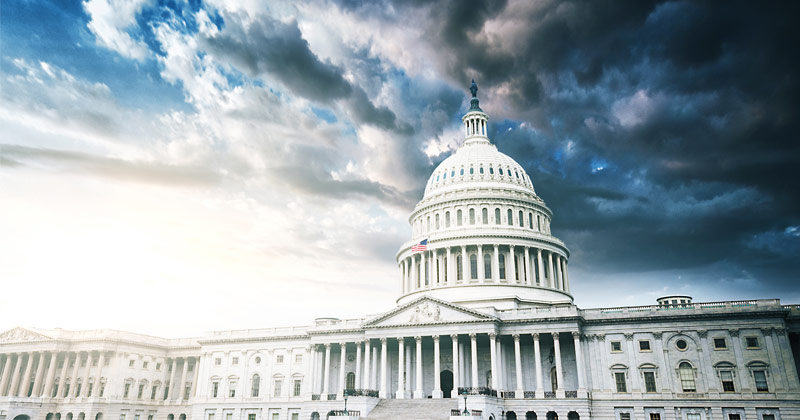
Remarks On Behalf Of Rep. Elissa Slotkin In East Lansing, MI | November 1, 2022
CONGRESSWOMAN CHENEY: Thank you all so much. I heard Sean say earlier that he was probably the least likely person to be on this stage today, and I thought, well, maybe not the least likely. But it is a tremendous honor for me to be here and to support my friend, Elissa Slotkin.
I actually got my start in politics working for another Michigan candidate whose name was Jerry Ford. And I was 10 years old in 1976 when President Ford was running and my dad was his Chief of Staff. And I was given a job, as a 10 year old, we went to volunteer and my job was to take envelopes and to wipe them across a sponge which was sitting on a plate to seal the envelopes up – you guys know that era of volunteering. And after about 10 minutes or so I was politely moved off that task because my envelopes were all way too wet. But I was I was very proud, bery proud of of that experience and of working for Jerry Ford. And I thought as I came here today, what would Jerry Ford think? And I think that Jerry Ford would be supporting Elissa Slotkin.
I, as I’m sure you know, as Elissa knows, I got many of the same questions about, you know, what are you doing? This is, by the way, the first time I have ever campaigned for a Democrat. And I have to tell you that it was not a hard decision at all and that’s because I know Elissa. Because I work with her – we’re on the Armed Services Committee together. I find myself, as I talk to people around the country and people say to me, how do we get out of this terrible situation that we’re in as a country? And my answer is, normally, part of my answer is, we have to elect good people. We have to elect people who are competent, we have to elect people who will do the work. We have to elect people who take their obligations seriously. And all of those things describe Elissa Slotkin.
Now, as Elissa said, we certainly have our policy disagreements. But I will tell you that any time that I know I’m about to get into a debate with Elissa, I know I better be prepared. Because I know she will be. I know she will have done her homework, I know that she’s got the level of expertise to tackle the most complex national security issues. I know that she cares deeply about the people that she represents. And when you think about how members of Congress influence other members, how do you make sure that your member of Congress can be the single most effective voice for you? You want somebody who has that expertise, that skillset, that discipline, that hard work, that work ethic, because that person becomes – as Elissa has – somebody that other members go to. Other members will say, wait a minute, let’s go see what she thinks about this issue. And in that way, you’re not just being represented by somebody who is sharing your views, who is representing your perspectives, you’re being represented by somebody who’s influencing others.
Now Elissa mentioned January 6th and our friendship didn’t begin with the bag of popcorn that night, but it sealed it. And, I will tell you that as somebody who has grown up in a Republican family – you might not know that, I did – and I have voted Republican in every single election in which I voted starting in 1984. But I always believed that, fundamentally, when the chips were down, that people would meet the moment. That people would do what was necessary. And one of the saddest things about the last almost two years now, has been recognizing how few people do that. Recognizing the extent to which, you know, maybe it’s human nature, it happens right now to be happening in my party, people who put political goals, political success ahead of their oath of office. And I will tell you that one of the many lessons that we have learned about January 6th is, every individual makes a difference. Every individual matters. If you look at what happened on the 6th itself, and in the days leading up to it, what you see are a series of individuals, and it’s not many, it’s a handful of people like Rusty Bowers, a handful of people like Brad Raffensperger, a handful of people who resisted tremendous pressure.
And if it weren’t for those people, the crisis that we faced on January 6th would have been a far, far more serious constitutional crisis than it was. And so I know that certainly sitting in Wyoming, sitting here in Michigan, looking at Washington and realizing what a bureaucracy it is, realizing how out of control at times the federal government is, it can seem, sometimes impossible. It can seem as though we’re facing a situation that we can’t come back from, that we can’t influence. We have too often good people say, you know what, I’m out. I’m not going to be engaged and involved anymore, because it’s just too hard. Our politics have become too toxic. We see situations like we’ve seen, tragically, the violent attack on Speaker Pelosi’s husband just last week. And the Republic is fragile.
Elissa mentioned working overseas, I had the opportunity to work overseas as well in countries that were either trying to attain democracy or sadly in places where it was slipping away. It’s fragile. The United States is the oldest Democratic Republic in the world and we’re only 246 years old. And if we want to ensure the survival of our republic, we have to walk away from politics as usual. We have to walk away. We have to stand up, every one of us, and say we are going to do what’s right for this country, we’re going to look beyond partisan politics. If the people in our party are not doing the job they need to do then we’re going to vote for the people in the other party because we are Americans above all else.
Now, Elissa mentioned something that’s very important and I agree with her completely. This country needs two strong parties. We need parties that are committed to our substantive policy beliefs, disagreements, debates. We need to know that we will have parties that can engage in those substantive debates, but we never get to get to those debates if we elect people who will not respect the outcome of elections. We must not do that.
And so let me let me leave you with this. On the night of January 6th, I walked from the floor of the House into Statuary Hall. And Statuary Hall is where the House Of Representatives met before the current House floor was built in the middle of the 19th century. There are statues around Statuary Hall of some of the key figures in our nation’s history. And I walked through the Hall because I wanted to see what had happened after the attack. And lined up, leaning up against every statue in Statuary Hall, were men and women in riot gear, SWAT team members, men and women who had battled for hours to keep our Capitol safe. And as I walked through trying to come up with words to thank them, it was very difficult. They had saved Congress, they had defended our democracy, they had saved on Capitol building. And when you talk to them, they will tell you it was medieval hand-to-hand combat.
I walked from Statuary Hall into the Rotunda. And when you do that, when you walk out of Statuary Hall that way, there’s a statue – it’s the oldest statue in the Capitol – and it’s a statue of Clio. She’s the muse of history. And she was placed there when the House Of Representatives met in that room to remind the members of the House that their deeds are being recorded in the book of history. She’s taking notes in her book, she’s riding in the Chariot of Time. And she was put there to remind everyone that what we do matters. I walked from Statuary Hall into the Rotunda. And again, in the Rotunda, which is one of the most sacred spaces in our Republic. It’s a place where our presidents lie in state. It’s a place where the statues of presidents like Lincoln and Washington and Jefferson stand. And again, against the walls in the Rotunda that night were the men and women who had defended us.
And there’s also a painting in the Rotunda. There are many paintings by George Trumbull, but there’s one I want to mention to you in particular. And that’s a painting of George Washington when he gave up his commission. When he laid down his sword, he gave up his power, and he said, I’m going to go home. And it may have been one of the most important moments in world history, it was certainly one of the most important moments in our history. Because it is a moment that reminds us all about the peaceful transition of power. That’s fundamentally at the heart of who we are as Americans. It’s a peaceful transition of power.
Every president in our nation’s history has honored that until Donald Trump. Every one. Take the time and go back and look at Al Gore’s concession speech in 2000, watch Al Gore’s concession speech. And then watch John McCain’s concession speech in 2008. And actually, any concession speech of any presidential candidate that you watch has the same elements in it. And those are the elements of, this was a hard fought election, but it’s over and now we’re going to come together as Americans. As a country today, we’re facing an ongoing assault by the former president and by the people that are spreading his lie, a lie that we know caused violence. And the chips are down for us. This is our time of testing. Not a single one of us in this room and not a single one of us across this country can be a bystander. We all must stand and defend this Republic.
And I’m honored to be here today on behalf of my friend and your representative, Elissa Slotkin. And I am honored to ask you all – Democrats and Republicans and Independents – to cast your vote in this election for a representative who does that, a representative who serves the people of Michigan, a representative you can count on to do the right thing, to be your voice, and to work hard on behalf of this whole country and to put country above party. Thank you all. God bless you. God bless the United States of America. Thank you.




